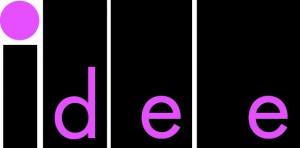The following article appeared in The Washington Post, November 2, 2016.
By Eric Chenoweth
Donald Trump’s presidential candidacy has posed many challenges to U.S. media. In at least one frightening respect, it has failed: News outlets are actively abetting an authoritarian and imperialist foreign power’s attempt to manipulate a U.S. presidential election to aid its favored candidate, Trump, and sanctioning an assault on the individual and civil liberties of all American citizens.
There is consensus among U.S. intelligence and law-enforcement agencies that the WikiLeaks “dump” of emails from the Democratic National Committee, former secretary of state Colin Powell and John Podesta, chairman of Hillary Clinton’s presidential campaign, is the result of illegal, targeted hacking directed by Russian intelligence services. The aim of WikiLeaks’ founder Julian Assange in publishing the emails is openly stated: to harm Clinton’s candidacy. The slow daily release of Podesta’s emails is obviously calculated to have continuing negative impact on news coverage of Clinton in the campaign’s final weeks. The Russian government’s aim in releasing the emails through WikiLeaks is also clear: to distance the emails’ provenance from Russian intelligence services to give them greater legitimacy and propaganda value.
The mainstream media has accepted this ruse. Its members treat the emails as a legitimate basis for news stories despite a general lack of corroboration of their content, the illegal nature of their seizure and their clear origin from a foreign state intelligence agency with known capacity for falsifying documents.
News editors are quick to respond: The information is out there; we have a duty to report it; if the Clinton campaign could show that the email has been manipulated, it would. But let us be clear about what has happened. Would any self-respecting news editor take a call from the head of the GRU or the FSB (Russian military and state intelligence) and accept an offer to publish a cache of emails from the staff of a U.S. presidential candidate? This is essentially what every outlet covering this story has done, in the process placing all of our private means of communication at risk of exposure from illegal invasion by any foreign power or domestic agency. The media’s freedom to publish such information may be protected, but its willingness to treat this information as news means that it has abandoned the basic ethics of journalism and its essential purpose to mediate such information for the public.
The media has generally ignored signs strongly suggesting the release of Podesta’s emails was likely coordinated with the Trump campaign. In mid-July, Trump adviser Carter Page reportedly met with the Russian intelligence official believed to be directing the illegal hacking (Page denies the meeting took place) and later that month Trump publicly encouraged Russia to hack Clinton’s email. In mid-August, Trump henchman Roger Stone bragged of his relationship with Assange and then warned Podesta on Twitter that he was the target of the next WikiLeaks release.
The full fruits of this effort can be seen daily on Fox News and Breitbart, the leading propaganda organs of the Trump campaign. Every offhand remark is turned into an offense by the DNC, Clinton, her husband or her aides. Nothing needs to be proven. It is sufficient for the emails to be published and accepted by other media.
What we are being introduced to – and what the free media is not defending itself against – is the confabulation of state propaganda and intelligence organs of the Russian government. Russian state television and other state-directed media frequently report actual and fake information all blended together with the intent of promoting fear of the West and of the civilizational collapse that Western democracy supposedly brings. As Post columnist Anne Applebaum has warned, such propaganda is being channeled even through Trump himself (for example, doubting that a Russian missile took down the Malaysia Airlines Flight 17 jet and asserting that the election of Clinton would mean the start of World War III).
What is terrifying is that it has become abundantly clear that U.S. media could not protect itself from a directed manipulation through use of fabricated documents right before the election. The precedent is set: The media will accept without verification and without regard to illegal or unethical provenance any documents, records or communications published by a foreign state power through WikiLeaks.
Clinton’s warning in the third debate about the “unprecedented” challenge posed by Russia’s interference in U.S. elections has been ignored as self-serving. Her refusal to respond to any questions based on WikiLeaks is seen as further stonewalling over questions of unethical behavior. But her warning is a clarion call and her refusal is a principled stand that the media – and the American electorate — ignore at their peril.
